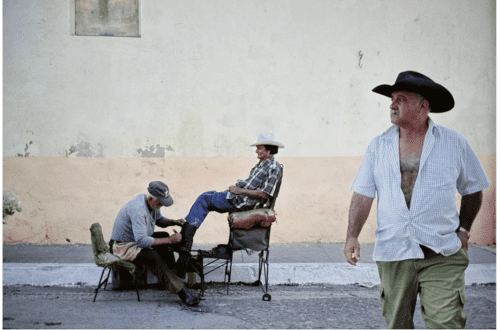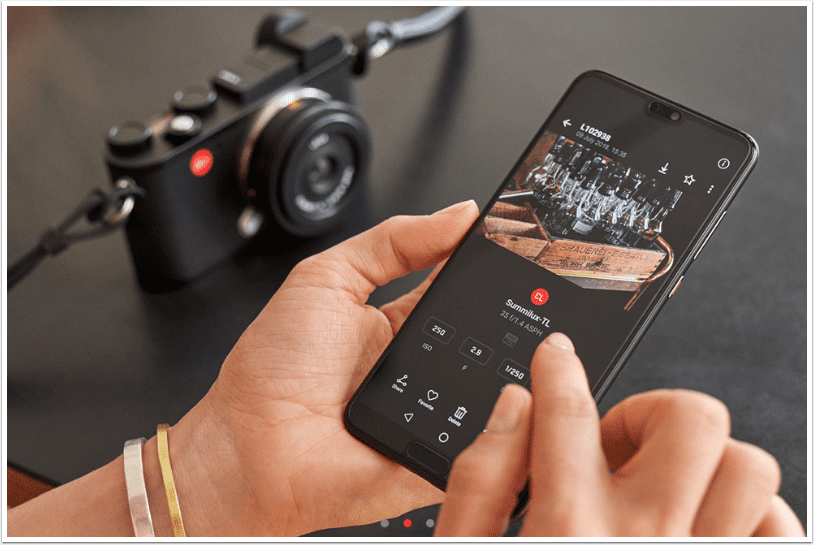The Enterprise and Regulatory Reform Bill receives Royal Assent
This is a hugely controversial Bill which became an act of law last week. BJP report, ‘The bill was originally written to eradicate unnecessary bureaucracy but presented a series of provisions, introduced through the back door by the Intellectual Property Office, to allow the use of orphan works, such as images that lack metadata and whose copyright owners cannot be found’.
Now, the Bill has not been completely finalised yet, although it has received Royal Assent, the proposed copyright changes have not been approved by the UK government. But, if it is finalised it will effectively mean that the government can introduce controversial regulations.
As BJP explain, ‘If introduced and approved, these regulations would have seismic repercussions for photographers both in the UK and the rest of the world. “The invention of photography and its mass adoption by the population created a new kind of potential value, but being analogue it was too expensive for corporations to exploit en masse the many millions of photographs they made,” comments Paul Ellis of the Stop43 campaign group. “Digital changed all that. Intellectual Property is the oil of the 20th century, and the almost cost-free duplication and dissemination of digital files has resulted in a huge stream of images. The trouble is, it was illegal to exploit them without the owners’ permission. That’s no longer the case.”
While publishers seeking to use an orphan work will have to demonstrate they have done a reasonable search for the image’s owner, a large number of online services, such as Facebook, Twitter and Flickr, strip the metadata from uploaded images, creating millions of new orphan works each day.
“What does this mean for the general public? They’re stuffed,” Ellis told BJP in an email conversation. “In the way of things, their huge mass of unremarkable images throw up lottery winners that make it onto the front pages of newspapers and news websites, and generate huge value for media organisations. The difference is that lottery winners usually get the winnings. Now owners of lottery-winning images usually won’t.”
Professional photographers, however, could benefit from the Copyright Hub’s upcoming launch. “The Hub promises free or low-cost registration of works to stop them being declared orphan, but registry facilities barely exist yet, and even when they do, for producers of large numbers of relatively low-value works such as photographs, the time and costs of registration are likely to remain significant for some time to come,” said Ellis.
There is an app, called Marksta that allows you to add IPTC metadata and watermarks to an image – you may find this useful. It retails for $1.99/£1.49 and you can download it here.
Alternatively, another one we would recommend is iWatermark, it also retails for $1.99/£1.49 and you can download it here.
We’ll keep you informed of updates to this situation as it happens, keep checking back for that…




8 Comments
Laurence Zankowski
Joanne,
I guess for americans, ( I do not know what you have in the UK ) is to register your work with the Library of Congress, if you deem it necessary to. I have for my early work. However, the answer lies in creating an app that like an alpha channel all that metadata is actually in the image itself with out altering the image. Like those yellow dots that are used in printers to identify them to forensic folks. Which leads to this idea. Most camera sensors have a unique image finger print, i wonder if we can do the same at sensor acquisition were your name and copyright is embedded at the pixel level before the image goes into the on board memory cards.
Just some random ideas
Be well
Laurence
P.s. this discussion needs to continue, might be a good idea to have a curated copyright column here on the appwhisperer.
Carlos
And so evolves humanity in the digital jungle. I try putting a copyright notice in everything that leaves my hands created by myself. Iwatermark is great for this. Clear watermark is another.
Geri
Carlos, does that info stay with the image when uploaded to sites like IG, EyeEm?
Chris
I don’t watermark my images, but I have set up an IFTTT action that automatically uploads all of my Instagram pics to my Flickr account. Flickr clearly shows that it is copyrighted by me, and in the US your copyright is protected the moment you take an image. Where registration comes into play is when you are seeking monetary damages, rather than a simple take down notice. Not sure if this is enough, but I agree that more discussion is needed.
Geri
Chris, Is uploading to Flickr enough to prove copyright?
Chris
The minute I snapped the photo, it was copyrighted by me. I have no need to register with the U.S. Copyright and Trademark office. A watermark doesn’t protect my copyright, either. If I place a watermark on my photo, and someone removes it by cropping of photoshoping it out, the only recourse I have in the U.S. is the ability to get triple damages from the offender, because their copyright violation was willful. Then that would require me to hire a lawyer, go to court, etc. Watermark or note, it’s my photo.
The issue that is coming up with this new UK law is “orphan works”. Its the same argument Google tried to make about it’s Google Books scanning project. IF the copyright owner can’t be found, the work is orphaned and therefore shifts to the public domain. Several courts have debated just what constitutes an orphan work. I wouldn’t even have to post to Flickr to protect my copyright. But by posting my work on Flickr, I have some evidence that 1. It is my photo. and 2. I have reserved all rights to myself. I can alter those rights some, as I have licensed a few photos of mine under Creative Commons Share Alike in order to use them on Wikipedia.
Anytime you post a photo on-line, you license whatever service the rights to copy, distribute, and share your photos, but it’s still copyrighted to you. This is true of the big ones like Instagram, Facebook, and Twitter. Starmatic, Eye-em, and Streamzoo have similar terms. Flickr is the most photog friendly of the bunch, since it allows for granular control of how your images can be used and displayed on the service.
The analogy I’ve always heard is if you mail a physical photograph to a friend, only one copy is transmitted. But if you e-mail (or post online) that same photo, several copies must be made. There’s the copy on your computer, the webservice has to make a copy in order to send it to your friend, and then their web or e-mail provide makes yet another copy to pass it along. It’s the lawyers that really get involved on this point. It’s their way of trying to say “please don’t sue us. We only copied your photo in order to share it like you asked, and we don’t owe you any money for doing so.”
The only pure way to avoid this is to never share your photos online. The gentleman that runs Pressgram thinks he has a solution, but that involves posting your images to your own website. His argument is that his photo’s value is not fully realized because some other service is getting views and ad revenue from it. But unless you are self-hosting your own website on your own server, someone still needs to make a copy of that photo to put it on the Internet. With digital sharing there is always a risk, and the biggest problem is finding out when someone has used your photo. All I can do is accept that risk, while trying to minimize my exposure as much as I can with meta and IPTC data in my photos.
Joanne Carter
Hi Chris, we have a forum category set up if you’d like to chat in there about this, that would be great too. Many thanks.
dcmacnut
I just got signed up a few days ago but hadn’t had a chance to check it out yet.